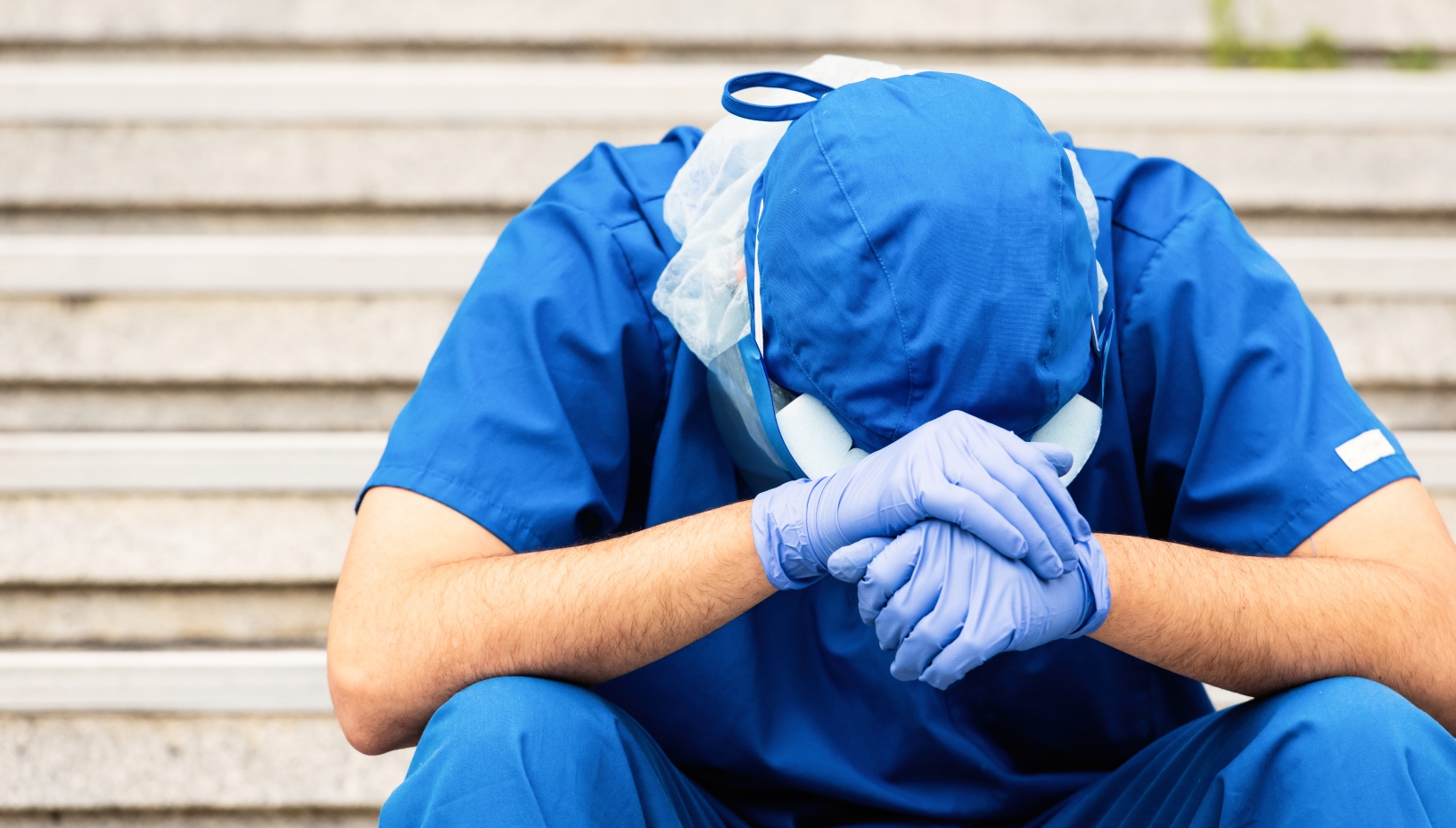As a problem-solver, Dr. Faiqa Cheema wanted to specialize in infectious, but the questions and unknowns surrounding COVID-19 proved overwhelming at times.
“In the first three months, I remember going 12 hours – I didn’t have time to eat, I didn’t even have time to use the restroom,” said Dr. Cheema, director, Transplant Infectious Disease, and assistant director, general infectious disease, at Hartford Hospital.
Listen to the full podcast
Dr. Cheema, who was tapped as a Hartford HealthCare expert for the media, participated in a panel discussion addressing physician burnout days before National Physician Suicide Awareness Day on September 17.
The pandemic has challenged the spirit and focus of physicians, who aren’t the best at following medical advice in the first place, according to Dr. Lindy Thomas, a St. Vincent’s Medical Center emergency medicine specialist.
“There is something in doctors that prevents us from seeking help,” she began. “I think there are a fair number of maladaptive behaviors – we’re taught we have to be present even when we’re sick, that we can’t go to the bathroom in the middle of a shift.
“If you show any weakness, you’re at risk of seeming like you can’t manage. You should be able to manage.”
Troubling statistics
This pressure caused up to 400 recorded physician suicides a year before the pandemic, added Dr. John Santopietro, physician-in-chief of Hartford HealthCare’s Behavioral Health Network. The pandemic has shifted the core of physicians who suffer “moral distress” as a result, he said.
“People organize their lives to do something good, and when the rules change for them, it causes moral injury. When the doctors see people on social media who won’t be vaccinated or wear masks (it’s distressing),” Dr. Santopietro said.
Healthcare providers, Dr. Cheema added, have been confounded for months by a continuously evolving virus, while also battling public enmity and distrust.
“We all have had to constantly learn and adjust and evolve based on the changing information coming at us from all sources. Staying updated on what is most current to advocate for what would be the best treatment and prevention options for the community has been physically, mentally and emotionally taxing,” she admitted.
Self-appointed community experts on the virus and vaccine, she said, perpetuates the spread of misinformation that prompts people to make often lethal choices.
“We feel, as the medical experts, (that this) is completely preventable,” Dr. Cheema said.
Dr. Santopietro agreed, adding, “There’s a growing frustration over ‘Why don’t people listen to us?’”
Uncertainty about the virus, he said, has been stressful for physicians who do not like to feel they’ve lost control. Bearing such stress for 18 months has been burdensome.
Healing for the healers
The physicians, however, said lessons they’ve learned from the pandemic include the importance of prioritizing self-care, and being strong enough to reevaluate themselves as humans and physicians.
“I changed the way I view myself and my understanding of what my limits are. I’ve also given voice to my struggles, which can form empathy with another,” Dr. Cheema said.
Such sharing, Dr. Listy added, helps physicians feel they’re not alone.
“There’s normalcy in knowing that” she said.
Keeping healthy practices in place – exercising, eating regularly and staying hydrated – are what Dr. Cheema called “my basic.”
“We judge ourselves more harshly, set higher standards for ourselves,” she said. “When there are setbacks, we tend to do it in silence. We need to rethink how we view mental health in healthcare workers.”
If peer commiseration is not enough, Dr. Santopietro urged physicians to seek professional help.
“It really does work. We’re not trained to look for signals within ourselves, so people shouldn’t wait for signals to reach out,” he said.
National Suicide Prevention Lifeline
If you or someone you know needs help, you are not alone. Call the National Suicide Prevention Lifeline at 800.273.TALK (8255), or 911 immediately.
Hartford HealthCare’s Behavioral Health Network is a national leader in the Zero Suicide Initiative.


